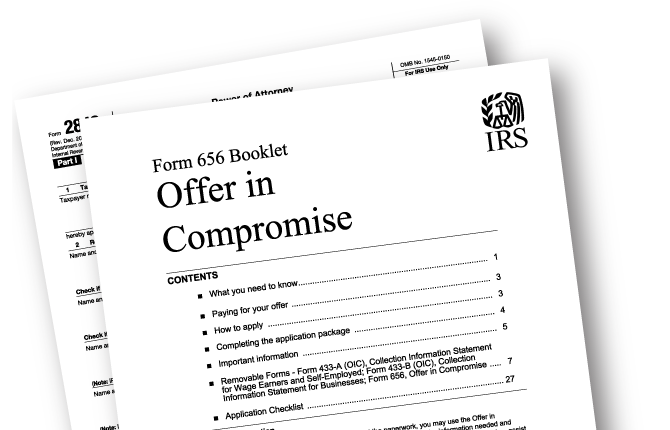Taxpayer Leaves IRS Settlement Offer on the Table
If a client owes the IRS money, he or she may not have to cough up the full amount. Instead, the taxpayer can make the IRS “an offer it can’t refuse” under its offer in compromise (OIC) program. This way, both sides may go home relatively happy.
Apr. 21, 2017

If a client owes the IRS money, he or she may not have to cough up the full amount. Instead, the taxpayer can make the IRS “an offer it can’t refuse” under its offer in compromise (OIC) program. This way, both sides may go home relatively happy.
But there’s no guarantee that the IRS will go along with your request. As evidenced by a new Tax Court case, if you object you must be able to show sufficient doubt that you can meet the tax obligations (Lloyd, TC Memo 2017-60, 4/10/17).
Background: An OIC is a formal agreement between a taxpayer and the IRS settling the taxpayer’s tax liability for less than the full amount. To qualify for this tax relief, the taxpayer must have filed all tax returns, made all required estimated tax payments for the current year and deposited payroll taxes for the current quarter if he or she is a business owner.
As a general rule, the IRS won’t accept an OIC unless the amount offered by the taxpayer is equal to or greater than the amount deemed to be the “reasonable collection potential” (RCP). The includes the value that may be realized from the taxpayer’s assets – including real estate, vehicles, bank accounts the like — plus anticipated future income, less certain amounts allowed for basic living expenses.
Facts of the case: A taxpayer with a commercial insurance brokerage business in D.C. was assessed the trust fund penalty for failing to make ten quarterly installments of employment taxes. Eventually, the taxpayer sought to settle the matter through an OIC, offering to pay just $3,000 for the unpaid liability of approximately $100,000. In support of her position, the taxpayer provided documentation to the IRS settlement officer (SO) indicating the following:
- Monthly income of $16,621;
- Monthly expenses of $16,847:
- Assets of $980,00; and
- Liabilities of $922,854.
The taxpayer’s expenses included housing costs of $6,964 per month and vehicle ownership costs of $1,617 per month. The majority of the latter expense was a $1,200 monthly lease payment for a 2012 Lexus.
After the SO submitted the offer, the OIC processing unit recommended that it be rejected because it was less than the RCP, which the unit calculated to be $175,035. The unit determined that the taxpayer’s reported monthly expenses, especially for housing and vehicle expenses, exceeded the applicable local standards by more than $1,000 per month.
The professional representing the taxpayer contested the determination. It was argued that the residence was an essential business asset because she sometimes worked from home and that the IRS should allow a household size of four for purposes of computing housing costs. With respect to the vehicle expenses, the taxpayer’s representative contended that her work as an insurance broker necessitated a high-quality vehicle.
Although the SO rejected this request for a deviation from IRS local standards, he informed the taxpayer that he could consider a six-year installment agreement of $1,545 per month. But the taxpayer refused the SO’s offer, so the case went to court.
Tax outcome: The Tax Court sided with the IRS. In doing so, it noted that an SO can deviate from local standards only if those standards are inadequate to provide for a specific taxpayer’s basic living expenses. It is the taxpayer– not the IRS – who bears the burden of providing information to justify a deviation. In addition, the Court noted that the IRS offered a six-year installment agreement at $1,545 per month, which was promptly rejected. Accordingly, the taxpayer still owes the full amount.
Moral of the story: Don’t allow pride or greed get in the way of a good deal. If you have a reasonable offer on the table from the IRS, it’s usually best to take it.
